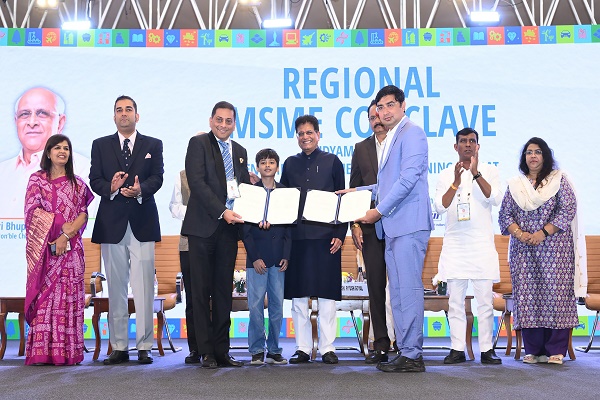`India Needs Listeners, Not Saviours`: Shashi Tharoor at TechHR`25

As organisations recalibrate for an AI-enabled future, the question isn’t just about technology, it’s also about the people leading that change. At TechHR India 2025, Dr. Shashi Tharoor made a compelling case for leadership styles and skilling models that keep pace with a changing world of work.
Addressing an audience of business leaders, HR heads, and technology thinkers at Yashobhoomi, Dr. Tharoor called on India to outgrow its fixation with heroic, centralized leadership and instead focus on collaborative models that empower people.
“India needs a leader who is less demanding. Someone who listens, collaborates, and uplifts,” he said, framing listening, not commanding, as the true currency of effective leadership.
Rethinking Leadership for a New Era
Referencing Ajinkya Rahane’s quiet yet decisive leadership during India’s 2021 Test series in Australia, Tharoor argued that the country must embrace leaders who prioritise collective wins over personal glory. This, he suggested, applies equally to politics and to the boardroom.
In a corporate environment still catching up with new workforce expectations, Tharoor urged HR and business heads to adopt inclusive leadership styles, ones that “make everyone feel included” and help employees see themselves in the organisation’s success.
According to a recent report, leadership development was identified as one of the top talent challenges with business impact, and nearly 1 in 5 HR leaders expressed dissatisfaction with their efforts to upskill mid-level managers for managing multigenerational teams.This underscores Tharoor’s call for rethinking who gets developed and how.
Skilling as India’s Competitive Edge
The conversation moved from leadership to India's bigger bet, its people. “We have 10 million people entering the job market every year. And we’re not ready,” Tharoor said, pointing to the urgent need for structured, scalable skilling models.
He proposed that companies above a certain size be legally required to operate skilling centres for rural youth and school dropouts. “They could hire the best, and others would leave with a diploma that opens up real opportunity.”
The industry seems to be recognising the gap. According to People Matters’ SHRPA 2025 study, talent development and upskilling ranks among the top three areas where HR leaders plan to increase investment. However, Tharoor noted that investment alone isn’t enough, execution must match ambition.
Beyond Optics: Rebuilding Brand India from Within
On India’s emerging digital identity, Tharoor acknowledged the shift in perception: from snake charmers to UPI. But he warned against relying solely on infrastructure and tech visibility.
“We’ve done a great job with the hardware—airports, convention centres, tech stacks—but we need to fix the software: education, sanitation, drinking water, poverty.”
He urged leaders to think beyond brand optics and invest in long-term capabilities, adding:
“Soft power without hard power is weakness. And hard power without soft power is bullying. India must develop smart power—investing in its people and projecting its values.”
The Real AI Challenge: Enabling People
As AI reshapes industries, Tharoor cautioned against building a future where a few innovate while many are left behind. He emphasised that India's true edge lies not just in tech adoption, but in people who can drive that change.
“Leadership in India must become less about control and more about enablement,” he concluded. “Our challenge isn’t just infrastructure or AI or branding, it’s making sure the people building this country feel seen, heard, and skilled.”
Above views are of the author and not of the website kindly read disclaimer



















